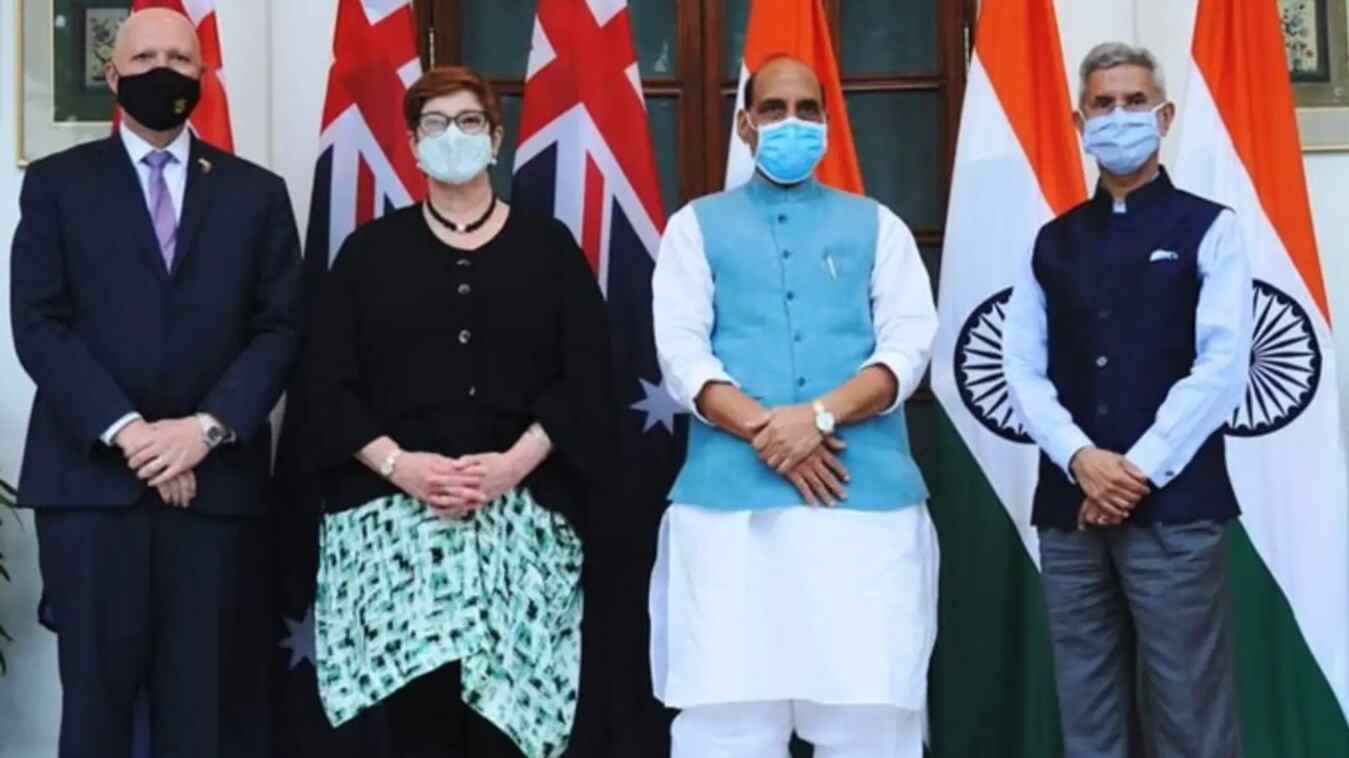In preparation

On Saturday, India and Australia held an inaugural '2+2 ministerial dialogue' with the focus being on ongoing instabilities in the region. With Saturday marking the 20th anniversary of the 9/11 attacks, Afghanistan was obviously a major topic of discussion at the meeting. The two sides not only agreed to expand their military engagements but India also invited Australia to participate in the production and development of defence equipment in India. Once again rejecting China's label of the Quad being an 'Asian NATO', India and Australia both emphasised that the body has several agendas that go beyond traditional military engagements such as vaccines, climate change cooperation, stemming the flow of misinformation, etc. Australian Foreign Minister Marise Payne further emphasised that "Quad members are champions of ASEAN centrality, we actively engage in that ASEAN architecture. We are committed to supporting the practical implementation of the ASEAN outlook on the Indo-Pacific." The background to this meeting is significant. First and foremost, it comes at a time when representatives from the US, Australia, Japan and India are making the final arrangements necessary to organise a face-to-face meeting of the leaders of the four Quad nations in Washington on September 24. Second, this meeting comes at a time that is obviously sensitive for the region at large. The US exit from Afghanistan has created a problematic situation in India's neighbourhood with the Taliban coming to power. While countries such as Pakistan, China and Russia have rushed to not only recognise the Taliban but also potentially provide the group with aid, the international community has remained wary of engaging the Taliban. This is particularly the case now with the group's announcement of its interim government reigniting fears that nothing has changed for Taliban 2.0. India too is stuck in limbo in regards to its interactions with the Taliban. While India has a history of opposing the Taliban and its rule in Afghanistan, the changing circumstances have forced it to engage with the group. In this regard, the overlying framework of mutual cooperation in the Quad may help India fine-tune its approach to Afghanistan and the Taliban. With the support of China, Russia and Pakistan, it has become somewhat doubtful that the international order organised under the UN would be capable of holding the Taliban to its promises of providing moderate leadership in Afghanistan. In the place of an organisation as unwieldy as the UN, the Quad could play a significant role in jointly negotiating with the Taliban and holding it responsible for its lapses in obeying a rules-based international system. As a grouping, the Quad could also more effectively provide incentives for the Taliban to improve its international image in return for significant economic concessions. Despite claims of the Quad not being militaristic in nature, it is undeniable that engaging with the Quad also plays into India's recent pattern of employing so-called 'defence diplomacy' which aims to expand India's security ties with its partners. Thought to be a counter to the rising influence of China, India's defence diplomacy has already seen the nation participating in a growing number of military exercises with strategic partners abroad. Ranging from bilateral exercises with India's old partners such as Russia to Quad-plus exercises like the Exercise Malabar and La Perouse, India is clearly broadening its strategic outreach to keep a check on the influence of its rival China, particularly in the Indo-Pacific. Not only do such exercises provide the necessary optics to keep China on its toes, but it also provides valuable experiences of interoperability to India's armed forces. These exercises also have the obvious effect of promoting further bilateral ties between India and its security partners, providing for an ideal tool of diplomacy that can also double as a shield when the occasion calls for it. With the Indo-Pacific now assuming central importance for geopolitics, India can expect such outreach efforts to pay a major dividend in the future as its multidimensional competition with China continues to heat up in the future.



